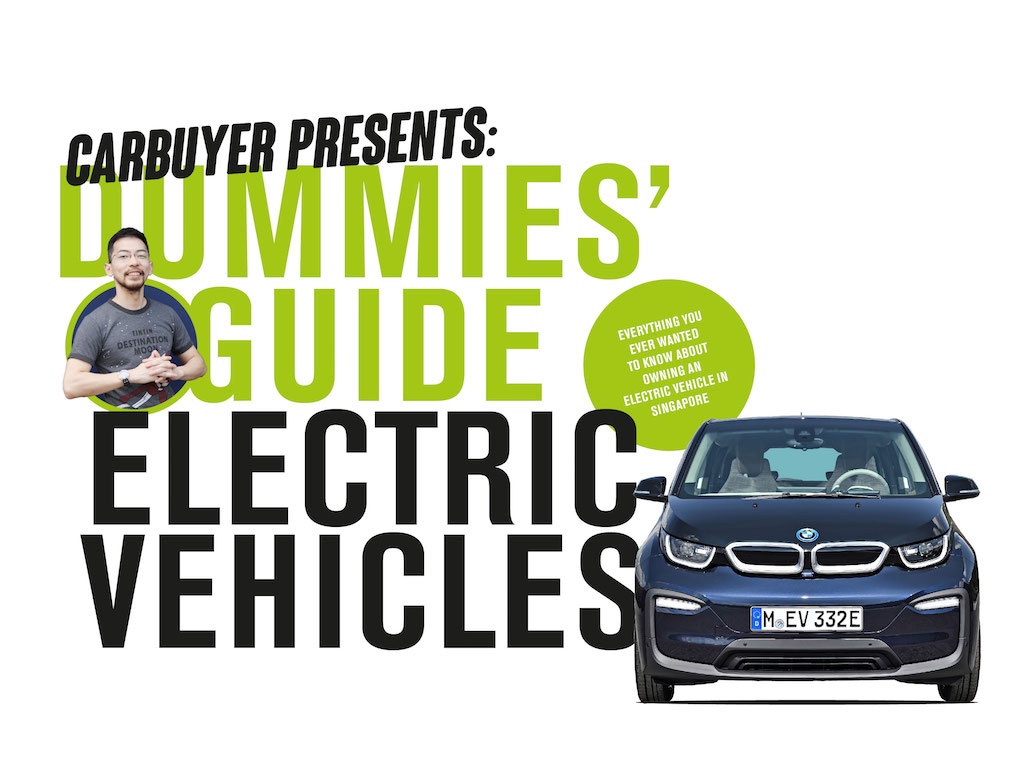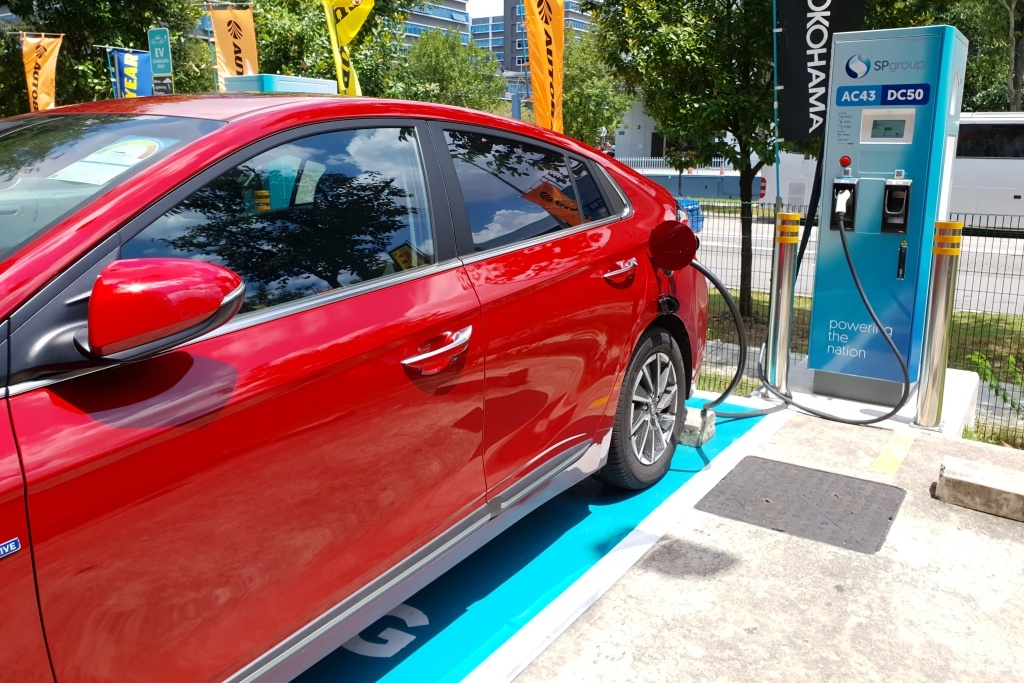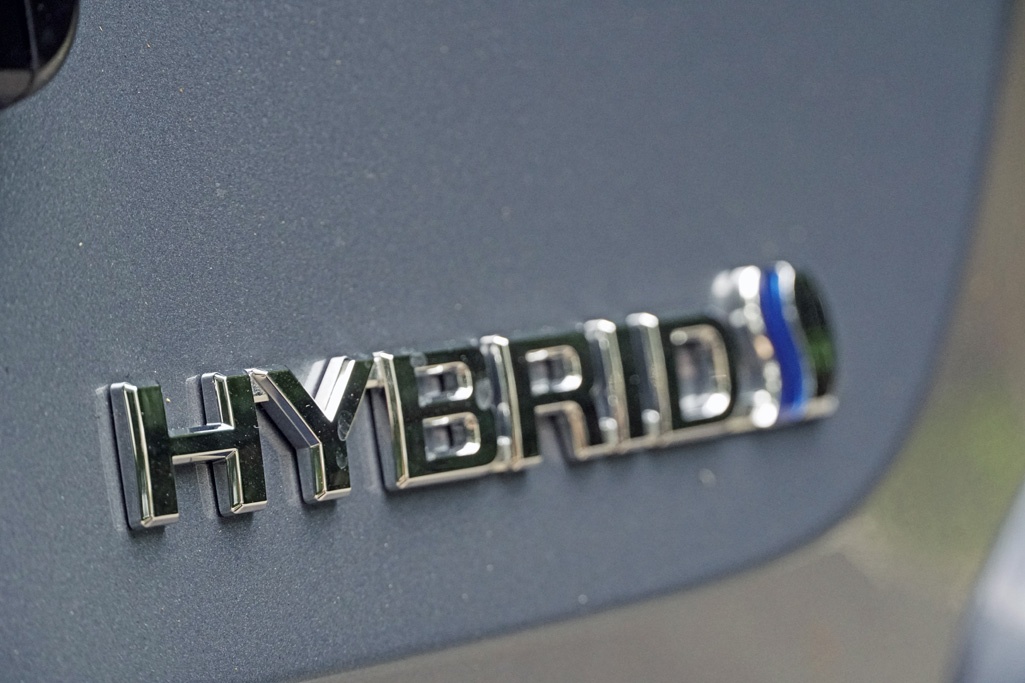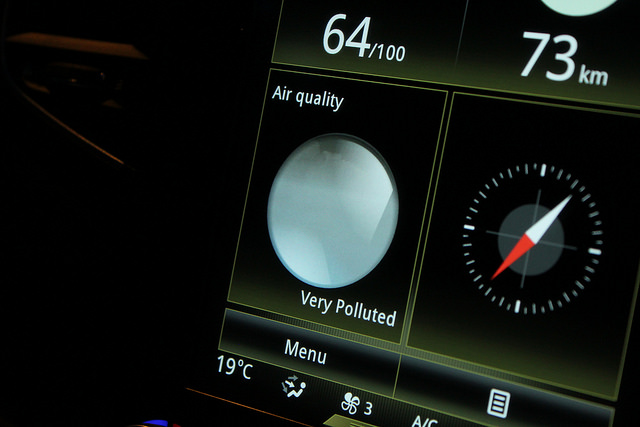A Dummies' Guide To Owning An Electric Vehicle In Singapore



CarBuyer Team
17:59 October 15,2021


All you need to know about ownership of battery electric vehicles (BEVs) in Singapore, updated for 2021
SINGAPORE
Updated: October 2021, February 2021, April 2020, October 2019. Story First published: 2018
Note: CarBuyer.com.sg now uses the term BEV (battery electric vehicles) to refer to cars powered solely by electricity of their batteries. The terms BEV and EV are used interchangeably in this guide, though technically an EV can be powered electrically but not use batteries (eg hydrogen vehicles).
This guide is split up into segments, click the links below to jump straight to that section:
EV Pros and Cons
The EVs available for sale in Singapore
Comparative range of EVs here
Where To Charge /How to charge
Is an EV expensive?
Cost of Ownership
EV Alternatives
Why EVs are the way forward
Background and why choose a BEV?
Battery electric vehicles (BEVs) are not far from the mainstream now - they can go much further than the average Singaporean driver needs per day and offer a great driving experience. While their price is still higher than conventional cars and widespread personal charging isn't available here just yet, that will change in the next five years. In short, even if you're not considering one right now, you certainly will be in the near future.



BMW's i3 was the first passenger EV to launch in Singapore, back in 2014, and it set the trend for expensive, luxury EVs that bring us to where we are now - if you want to save the world, you'd better have the extra cash.
However from 2018 on, the launch of more affordably-priced and a wider range of EVs saw Singapore reaching another signpost on the road towards electrification.
But the biggest change came in 2020 and 2021, when the Singapore government announced widespread measures to boost BEV ownership here. The Electric Vehicle Early Adoption Initiative (EEAI) and updated VES announced in 2020 makes BEVs up to S$45k less expensive than before, while there are plans to expand BEV charging infrastructure to 28,000 charge points in Singapore by 2030.



We say 2021 is the year of the hybrid because petrol-electric hybrids are now extremely cost effective and will be the default for normal car buyers that don't have a charge point. But BEVs are now accepted as the step global motoring needs to take to prevent emissions, and Singapore is now officially onboard with this.
"...while you may not actually be considering an EV right now, we guarantee that will change in 2020 and beyond, so be prepared for the electric revolution."
In 2013, there were 134,000 EVs/plug-in hybrids sold globally. Since then, that number has grown by almost 50 percent every year, with 2017 seeing 1,281,000 sold globally, with a forecast for 1,900,000 in 2018, according to EV sales database consultancy, EV-volumes.com
So we’ve put together a CarBuyer guide to EVs in Singapore. And even if you may not actually be considering one right now, we guarantee the landscape will change in the next few years, so you’ll be prepared for the electric revolution.
EV Pros and Cons



- By our calculations, a EV can cost up to six times less to run, per km, than a conventional petrol car in terms of fuel cost alone.
- EVs can be less costly to maintain than gasoline or diesel cars since they have fewer systems that require maintenance (no intake filter, no oil changes etc).
- With a range of at least 200km, modern EVs have more than enough range for the average Singaporean driver.
- EVs are fun to drive thanks to the instant torque of their electric motors.
- EVs emit nothing from the tailpipe, and help reduce local air pollution.



EV: Cons
- EVs have only just become more affordable, but they’re still expensive, compared to a mainstream gasoline car.
- You’ll need your own charging station where you can charge a car for at least five hours, or even overnight. typically this means a landed property or at the very least, a private parking space.
- The current public network for EV charging in Singapore is expanding, but still not widespread enough that everyone can have an easily accessible charge point for the time required.
- EVs are only as clean as the power used to charge them.
- EVs are still not suitable for drivers who need to cover more than 300km a day.
The EVs available for sale in Singapore
Compared to 2016, or even 2018, there are now quite a few choices for Singaporeans wanting to buy a privately-owned, passenger EV, so much so that making a choice can be difficult. CarBuyer.com.sg has driven almost all of the EVs on sale here, and you can click on the links in the table below for their respective reviews.
We've also come up with a guide for the best mainstream EVs available for sale for under S$200,000 (with COE) in Singapore in 2021, so check that out if you wanna see what's the best EV for your money
EV Ranges Compared
| Car | Range |
| Audi E-Tron | 417km |
| Audi E-Tron Sportback | 315km |
| Audi RS E-Tron GT | 433-472km |
| BMW i3s | 200km |
| BMW iX3 | 454km |
| BYD M3e | 300km |
| Hyundai Ioniq Electric | 311km |
| Hyundai Kona Electric | 305km |
| Hyundai Kona Electric Long Range | 482km |
| Jaguar I-Pace | 470km |
| Kia Niro Electric | 455km |
| Lexus UX 300e | 300km |
| Mercedes EQA | 426km |
| Mercedes EQC | 423km |
| MG 5 EV | 403km |
| MG ZS EV | 335km |
| Mini Cooper SE Electric | 234-270km |
| Nissan Leaf | 300km |
| Porsche Taycan 4S | 414km |
| Tesla Model 3 | 567km |
The earliest EVs CarBuyer tested here were enough to give any driver range anxiety, range panic, and range generalised depression disorder. As you can see however, there are now far more EVs available on the market that can do at least 200km on a full charge, and several that can cover double that distance, or at least come close to that in the real world.
The average Singapore driver covers 17,500km a year, or 48km a day, so that's more than enough, but we still do not recommend a BEV for those who drive very long distances daily, unless you have access to daily charging at home.
Where To Charge



Charging an EV can be done at home (with a wallbox, see below). The biggest challenge to EV ownership is if you don’t have a landed home, or access to a private charger, which honestly is the case for most of us Singaporeans.
Currently for Singapore, the network of public EV chargers is quite small, though it has expanded greatly in recent times. BMW and Hyundai allow charging at their own showroom premises.
"The biggest challenge to EV ownership is if you don’t have a landed home, or access to a private charger..."
The provider for public charging is Greenlots (www.greenlots.com), where anyone can register for an account and a RFID card. At Greenlots stations you tap the card, charge the car, and pay by hour, from $1.50 to $2.00 per station.
While it has an established network of chargers across Singapore - 50 stations at 34 locations - only eight of the public stations have the latest Type 2 charge socket. Type 2 is the new European standard for EV charging and it’s the standard widely adopted in Singapore.
Greenlots has also installed charging stations at a small number of condominiums - with MCST approval - with Type 2 chargers, and it looks set to increase in future, so EV ownership could be a definite possibility to those who stay in condominiums in the near future.



As of July 2018, SP Group has its own EV charging network in Singapore, with 500 planned charge points around the island. In 2021 it has 30 charge locations around the island. Its DC and AC fast charge stations are open to the public and accessed via the SP app. The app is quite useful - you can monitor the charges and amount of charging done in real time.
As of 2019, Shell also has a small network of AC and DC fast chargers. It has also announced plans with Porsche to build the fastest BEV charge network to date - 150kW - stretching from here to Penang.
There are a lot more charge points planned as well. By 2022, there will be EV charge points at more than 200 public carparks. By 2030, the plan is to have 28,000 charge points with at least two-thirds of those in HDB carparks.
How To Charge An EV
Technically you can plug your electric car into a wall socket, but first of all it needs a safety-approved charge cable (not all of them are) or else there is a risk of fire. It's not unhard of for e-bikes to catch fire while charging, and lithium battery fires are no joke.



Also, not all wall sockets cannot provide enough current (amperage) to charge an EV safely and quickly. It is possible with an approved charge cable, but these are typically much slower than a wallbox.
The best way to charge an EV is with a wallbox. These are charging units specially-installed by the dealer at the owner’s place of choice, and usually included in the purchase price of the car.



It’s simple enough: Open the charge port on the car, plug in the charger head, and voila. Wallboxes are complex pieces of equipment and much safer than wall sockets, so they will automatically shut-off when the battery is topped up, as well as thermally manage the process for safety.
How Long Does Charging Take?
Again this is something that differs depending on what equipment you have - just like Fast Charging for smartphones, different chargers deliver different performance.
Simply put, electrical power is measured in watts. Power is defined as the capacity to do work. For example, an air conditioner uses 1000 watts per hour, that is one kilowatt hour (power used over time). Watts is obtained by volts (electrical potential) times amperage (electrical current flow).



Chargers with a higher voltage rating, or ampere rating, will charge a car more quickly. To use the smartphone example again, that’s why a 2.4A charger tops up your iPhone more quickly than a 1.2A one, while USB standard voltage of 5V remains the same.
Faster charging is not usually obtainable through standard-issue wallboxes, most of them deliver a charge rated at 7.0kW or more. The amount of charge also depends on the place the box is installed in. An old residence may be unable to handle higher loads, while an industrial building will be able to deliver the fastest three-phase or even DC fast-charging. If your home has three-phase power (talk to your electrician) then a faster charger can be installed.
But generally speaking, home wallbox chargers in Singapore will usually be able to charge modern electric cars in five hours or more though larger, more expensive, and more powerful EVs will have larger capacity batteries and take longer.
For instance, the BMW i3 has a 27kWh battery and can be charged in less than four hours,with a 7.4kW power supply. An Audi E-Tron with a 90kWh battery would take 12 hours on the same charger.
Also note that different BEVs have different charge rates. Hyundai's Ioniq Electric has a maximum charge rate of DC 50kW, while the Audi E-Tron's is DC 150kW. The Porsche Taycan has a maximum charge rate of DC 270kW. IF you plugged in a 100kW charger to the Hyundai, it would still charge at a maximum rate of 50kW.
Help! I’ve run out of juice…
It’s quite unlikely - in our experience, the current crop of EVs are very truthful about range indicated on their trip computers, so a little planning should ensure you’re never stranded. But if something happens, there’s a support system for that.
BMW has 24-hour recovery, plus an extended suite of coverage for BMW i owners under its BMW i Roadside Assistance, which covers everything from cab costs, bringing your car to the charge station, or even getting back home if you’re further afield (more than 100km away).



Hyundai has its unique vehicle-to-vehicle recovery service (above) where a rescue Ioniq Electric will charge your car with enough juice to get it to the nearest charge station. Owners can use it 10 times during their five-year vehicle warranty period. Komoco says the recovery vehicle will be on-site within an hour (it’s a 24-hour hotline service) and can charge the Ioniq Electric to 44km range in half an hour.
Continue to Page 3 for the costs of buying and running an EV in Singapore
Buying An EV



Before 2021, BEVs were significantly more expensive than an equivalent gasoline car, but now mainstream BEVs can be found for close to the prices of regular gasoline cars.
After 2021, the government has introduced rebates in the form of the EEAI (EV Early Adoption Initiative) together with a revised VES system, which can make BEVs up to S$45,000 cheaper than before.
But that's not to say all BEVs are more affordable now. Because of how the rebates are applied and computed based on Open Market Value (OMV), only the more expensive BEVs get the highest rebate (see our story link for more details) and it does not apply equally, meaning the prices of some BEVs have dropped significantly, and others not so.
You could drive away in an MG 5 EV for around S$130k with COE (as of Oct 2021), a price not far off from a petrol-powered Continental-brand family sedan. A Tesla Model 3 meanwhile will cost you around S$170k with COE, while a luxury BEV like the Audi E-Tron or Mercedes EQC, typically costs at least S$250k with COE.
In 2021, the available BEV models on sale also constitute a wide range of car types and budgets. If you need a van for business, there's even a BEV rebate for that in 2021 too.
Cost of Ownership
Dollar-per-km: Petrol vs Hybrid vs EV
| Efficiency | Fuel Price Per Unit | Price per full tank/charge | Full tank/charge range | Price Per Km | ||
| Hyundai Elantra 1.6 | 6.4L/100km | $2.48* | $124.00 / 50L | 781.25km | $0.1587 | |
| Hyundai Ioniq Hybrid | 3.8L/100km | $2.48* | $111.60 / 45L | 1,184km | $0.0942 | |
| Hyundai Ioniq Electric | 10kWh/100km | $0.4949 per kWh** | $13.85 / 28kWh | 280km | $0.04946 |
Prices from October 2021 *Caltex 95 after on-site discount **SP Group public charging rate at 50kW DC charging, not counting charging/grid inefficiency etcetera
Owning an electric car is cheaper than a petrol-powered one. As you can see on our chart, the per-km cost is magnitudes less than a gasoline car. But you can also look forward to saving money on maintenance.
Electric vehicle maintenance consists mostly of ensuring the electric and power systems are healthy (the onboard systems should do that already), brake pads and brake fluid are fresh, and tyres are usable. No engine means no spark plugs, no oil or air filters or similar consumables, less coolant and fluid replacements needed.
In 2018, Hyundai says, “Compared to a 1.6-litre class, petrol-driven family sedan, the Ioniq Electric will save you more than $5,000 in maintenance over a 10-year, 200,000km ownership period.”
Renault also says a Zoe owner can save $1,300 on service at 30,000km (only one service is needed, compared to three for a normal car)
A key concern for EVs, as it was for hybrids, is battery longevity. Reassuringly hybrid cars have shown that there are no major issues with battery packs and their lifespan - and it looks to be the same for EVs too.
Modern power electronics are very good at keeping the batteries in peak working condition (charge levels, temperature etc), so battery packs are rated for the lifetime of the vehicle.
Tesla owners around the world, for example, have experienced good longevity with their cars. According to predictive models, the batteries can retain up to 80 percent charge after 840,000km.
Local dealers also offer longer terms for battery warranties than the standard five-year car warranty: Hyundai’s is 10 years for the battery, BMW’s is eight years, 200,000km.
Road Tax
Road tax used to be obscenely high for BEVs here - a Tesla Model X's was higher than a Ferraris (see reference chart below). But thankfully that has all changed in 2021.
In 2021, the introduction of the EEAI and revision to road tax means BEV's have a much better time of it.
As of February 2021, the road tax for a relatively mainstream BEV is more expensive than that of a gasoline car, but not hugely so. The revised road tax formula is insanely complex, but it's calculated based on a BEV's power output. The LTA's calculator tool is here, for reference.
The MG ZS EV, which has 141hp and at S$125k with COE is one of the more affordable BEVs now, pays an annual road tax of S$1,147. In comparison, a regular petrol-powered 1.6-litre family car pays S$742 per annum.
However one part of the road tax system is still strange: EVs will have to pay an additional flat sum per year - in all of 2021, it's S$200. In 2022 it's S$400, and from 2023 on, it's a considerable S$700. Potential BEV owners will need to factor that into the cost over 10 years of ownership.
Reference: EV Road Tax Pre-2021



I want an electrified car, but have no place to charge...



If you want the benefits of electric power, here's the secret: Since the 'full' electric revolution is still at least a decade away (see next section), in the meantime hybrids and plug-in hybrids offer the benefits of electric cars, but with the relevance of a petrol support network.
2021 is not the year of the electric car, but the year of the hybrid: Thanks to VES making them as affordable - if not more - than gasoline cars, hybrid cars are going straight into the mainstream.



The evidence? In 2021 Toyota and Honda have already launched three mainstream hybrid cars - the Toyota Yaris Cross and Toyota Harrier, and the Honda Jazz, respectively. Even in the luxury segment, hybrids punch far above their weight. And looking at the data, even before VES revisions in 2021, 2020 saw 42,000 hybrids on the road, an all time high.
Are EVs really the way forward?



Singapore’s power is generated mostly by natural gas, which is far cleaner than coal. But there is also an increasing impetus toward renewables - again, part of a global trend - and in the near future we will be able to purchase electricity from clean sources from providers like Sunseap.
The practical side of the matter is - Singapore is going away from combustions engines too. The government's Green Plan also indicates that by 2030, it will begin to discourage the sale of new combustion-engined vehicles, and to end them by 2040.
Why? Pollution. We've seen the EV pros and cons, but the important thing is that we've realised air pollution from vehicles is a major negative for us, and the world.
As we’ve reported previously (‘Singapore’s air pollution level is much worse than you think’, ‘Is your car killing you slowly?’, on CarBuyer.com.sg), air pollution is an increasingly major killer of people worldwide. In 2019, Singapore’s own air pollution is, by some metrics, two or three times the World Health Organisation’s optimal levels.
EVs emit nothing from their tailpipes, so you can happily ‘idle’ the car and enjoy air-conditioning while waiting, knowing you’re not slowly killing everyone around you.


















Leave a Reply
Your email address will not be published. Required fields are marked *.